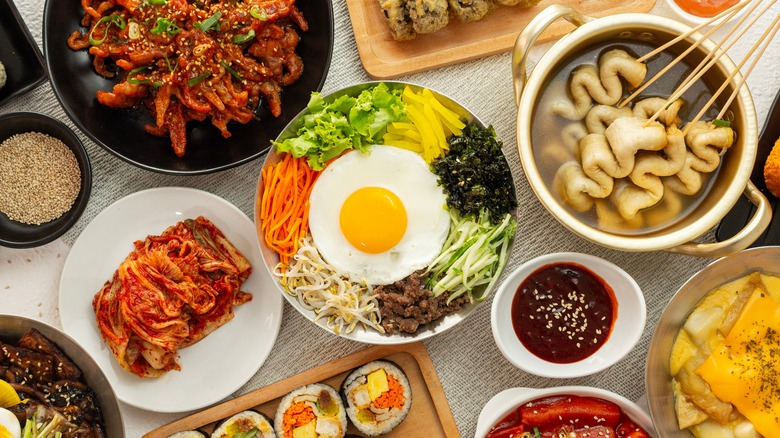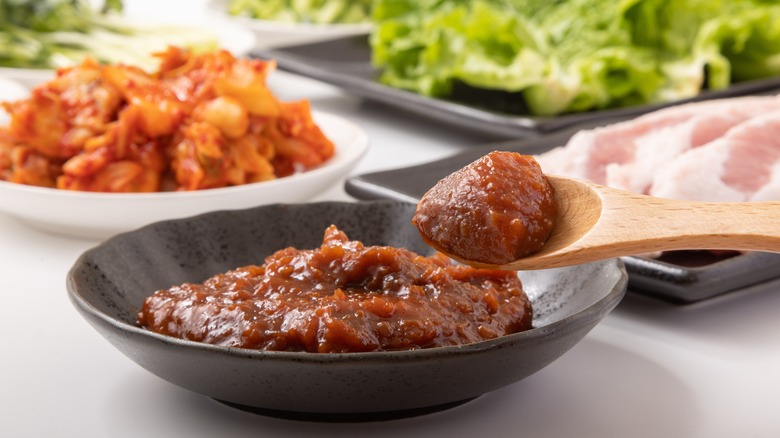How To Make Home-Cooked Korean Food Taste Like Restaurant-Quality
We may receive a commission on purchases made from links.
The term "restaurant-quality" is associated with well-made and delicious food. A night out trying the many flavors of Korean BBQ, from sweet and spicy to umami, is going to be as tasty as it is memorable, but don't be fooled into thinking you can't recreate a great Korean meal at home. At the launch of Walmart's bettergoods product line, we spoke to experts Danny Kim and chef Jae Lee, owner of the Korean restaurant Nowon in New York, about making home-cooked Korean food taste restaurant-quality and gained some valuable tips.
Restaurants have standardized recipes that make their meals consistently good, Lee explains. However, the main gap between Korean restaurants and home cooking comes down to the ingredients. As opposed to the money-saving mindset we bring to the grocery store, restaurants often opt for higher-quality ingredients that make a difference in the meal's flavor.
"For example, if it's steak, it's high quality steak," Lee notes. Furthermore, restaurants have mastered seasoning. "I think restaurants get really creative with their ingredients," says Kim. "Instead of just seasoning your steak with salt, you could season with truffle sea salt."
You just need to know where to shop
Chef Jae Lee is a firm believer in home cooking. "I think home cooking, no matter what cuisine it is," if prepared correctly, "always tastes better at home," Lee says. Done right, Korean home-cooking can be on par with even the best Korean BBQ restaurants in the U.S. – like the popular AYCE (All You Can Eat) Hae Jang Chon KBBQ restaurant located in the heart of LA's Koreatown. Of course, cooking skills and the ability to follow recipes matter. However, these skills won't make a difference if you don't have the proper ingredients.
The spicy Korean ingredient gochujang (made from fermented soybeans, glutinous rice, and red peppers), the fermented soybean paste doenjang, and the chili powder gochugaru are all irreplaceable in recipes, but they may be hard to find at your local supermarket. "So the problem with those is, in many places you have to go to an ethnic grocery store," Danny Kim explains. These Korean ingredients are still not widely available, so "you've just got to know where to shop." Thankfully, with close to 100 H Marts nationwide, an estimated 480 Korean grocery stores in the U.S., and online shopping, the right ingredients for a delicious home-cooked Korean meal can come to your kitchen, too.

